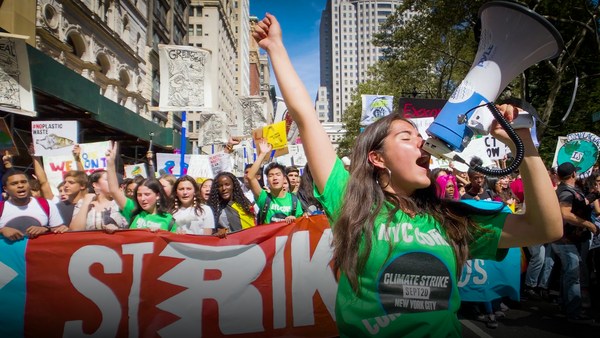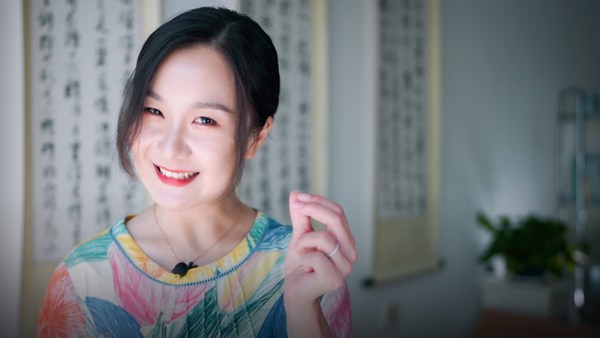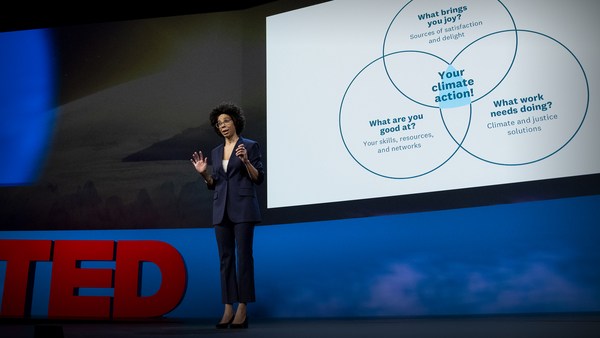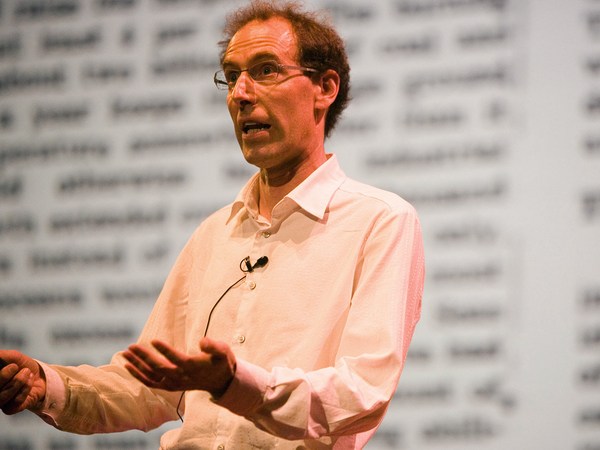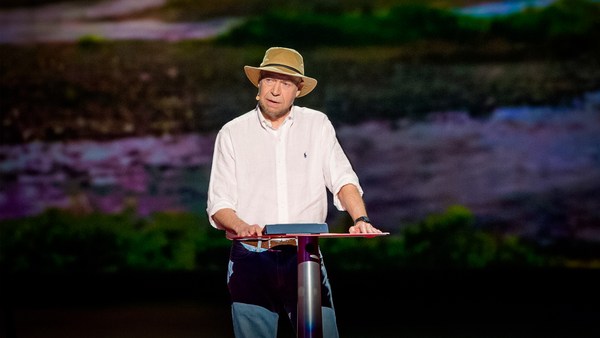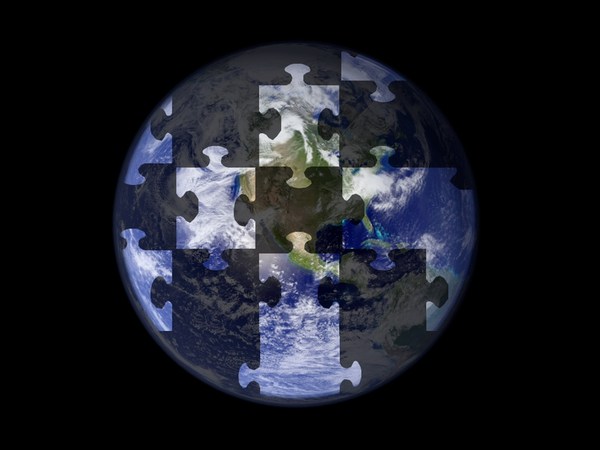I recently graduated college where I studied environmental science and environmental sociology. Now during one of my many, many finals week study breaks, I came across something that piqued my interest -- and it wasn’t something I was supposed to be studying. It was a survey of 10,000 young people across ten different countries on their feelings regarding the climate crisis. A survey found that 56 percent of Gen-Zers, the generation that I’m a part of and the largest age demographic in the world, believe that because of the climate crisis, humanity is doomed. This felt like a punch in the gut. I had just spent four and a half years and tens of thousands of dollars studying these things: countless time organizing on and off campus and energy getting involved with both local and national groups, yet most of my generation viewed it all as pointless.
Now if we look at the way that younger generations talk about the climate crisis, these feelings of doom and despair make sense. I mean, we’re drowning in bad climate news. Headline after headline detail each week’s latest catastrophe. “Unprecedented” has taken on a new meaning as each day is unprecedented. Just count how many times you’ll probably hear it today. I gave you two ones for free right there. And everything is amplified on social media where there’s a remarkable lack of nuance and an oversupply of attention-grabbing rhetoric. Many of us, including myself, seem to believe that if we just share these awareness posts enough times that someone somewhere will finally do something about it. But unfortunately, Joe Biden probably doesn't follow you on Instagram, and he doesn’t follow me either -- yet.
I’m part of a diverse, 19-person-strong collective called EcoTok, and we use social media to share nuanced climate education through infographics, memes and you guessed it, TikToks, to our collective audience of over four million people, most of whom are Gen Z and millennials.
And through our work, we’ve picked up on this pattern. Our comments sections are filled with people who have given up hope. People who say they have weekly anxiety attacks about the climate crisis. Or that they don’t want to have kids anymore out of fear of adding to the suffering. Or that they see no point in taking action when the powers that stand against us are so strong.
Our generation and younger generations need a new way of addressing the climate crisis that unshackles us from the cycles of doom and gloom that so often lead to inaction, because we cannot play a part in making change if we do not believe that change is possible. Climate denialism, which for decades has been peddled by oil, gas and other big business interests, has met its rival: climate doomism. The belief that we cannot save our planet, so why take action? Though they differ in origin, both have the ability to paralyze action and prevent progress. And though things are bad, they’re far from over.
So how do we find hope when things feel hopeless, and how do we communicate the inextricable link between hope and action? To answer this, let me take you back to March of 2020 -- absolutely no one’s first choice of when to time travel to. Many of us were quarantined in our homes, people had stopped going out and socializing, yet the stream and virality of bad news certainly had not stopped. I was finishing up my semester at home, as well as working to move my activism online when I was hit, not only with COVID but also with burnout. I began to question the efficacy of my work, my passion for environmentalism and the purpose in studying what I was studying. I knew I needed something to inspire me. I was scrolling on social media, and I saw a friend who had been sharing positive news stories. I paired this with the rise of feel-good dance videos that had really emerged on TikTok and started a series called “Weekly Earth Wins.” Here's a look at one of those videos.
(Music)
(Applause)
So at first this felt really, really silly. I mean, what did dancing have to do with climate action? And what good was sharing good news when everything felt so bad?
But then I began to receive people's feedback. People told me that these videos really helped mitigate their climate anxiety, that they looked forward to these videos week after week and that these videos helped turn their anger and anxiety into action. So I continued making them. And in the process of finding good news stories to share, I began to pick up on trends. Week after week, institutions were divesting from fossil fuels. Week after week, land was given back to Indigenous communities. And week after week, states were implementing renewable energy standards. I never overlooked the scientific projections or data, but rather tuned in to the hard-to-find good news stories and examples of successful on-the-ground work. And in the process, I uncovered the framework that I had been yearning for: climate optimism.
Climate optimism is a framework based on the idea that despite the bleak projections and the high stakes, we can restore our planet back to health, and in doing so, protect all that inhabit it. Climate optimism is what gives us hope when things feel hopeless, is what sustains us in our pursuit of sustainability and is what fuels us in the uphill battle of transitioning away from fossil fuels. It’s also what gives us the energy to continue fighting for our successes. Virtually, the zero-emissions energy source that nobody talks about.
So in this process, I realize also that climate optimism is not for everybody. Climate optimism is not for politicians who have stalled on action or corporations who have incessantly pursued profits over people. To them, my message is clear: listen to science and act now. Stop failing the citizens and people that you have a duty to serve. Rather, climate optimism is for those of us here today ... that have dedicated our lives to fighting the greatest battle of our time. But also to the part-time activists: those who do what they can, when they can. And perhaps most significantly, to the marginalized communities and people in the Global South, who frankly don’t have time to get stuck in the cycles of doom and gloom.
The need for climate optimism has never been more urgent. If we limit our vision of the future to one filled with oil rigs, smokestacks and suffering, we limit our capacity and shirk our duty to change the course of humanity for the better. By looking for good and working towards the good, we empower ourselves to be agents of good in the fight for the future that we deserve. The alternative -- giving up hope -- only relinquishes power into the very entities that have gotten us into this mess.
Luckily, I’m not alone in championing this movement. My friends at EcoTok provide a great example of a diverse set of backgrounds, experiences and voices coming together to encourage this generation and the next. Here's a look at some of our work.
(Video) Doria Brown: Canada is banning six types of plastics. The plastics include grocery bags, stir sticks, six-pack rings, reusable food containers, straws and utensils. Now hopefully they put some systems in place for some people who need those things for accessibility purposes, but this is a step in the right direction, and I’m excited.
Gabrielle Langhorn: From desertification to bountiful vegetation, a community in Cearà, Brazil has been able to rehabilitate their landscape using amazing collective action and funding from FUNCEME. Water is flowing, crops are growing and you can truly see a difference.
(Music)
Carissa Cabrera: [Good Blue News!!]
[The endangered Hawaiian Monk seal population is up to ... over 1,500!]
[This is the highest it’s been in decades!]
Henry Ferland: Welcome back, it is me, Trash Boy.
Every time I step outside I see trash and litter on the ground, and I hate it! So let’s clean some up! I got my trash bag and gloves, let’s go.
One, two, three, four, five. And all this trash in this grate, too. Much better.
Storm grates like that is exactly how trash enters the ocean, and we don’t want that. There are already over 5.25 trillion pieces of trash in our oceans. Let’s not let in any more.
(Applause and cheers)
ZB: We’re not naive. We know the details and the data that speak to the devastation of the climate crisis like the back of our hands because it's our future to inherit. But we also know that the future we deserve cannot be built on the unstable foundations of fear and anxiety. It must be built with one of the few infinite resources that we have on this finite planet: hope.
So we choose climate optimism. We choose to fight for the future that we deserve. And I hope you will, too.
Thank you.
(Applause)
